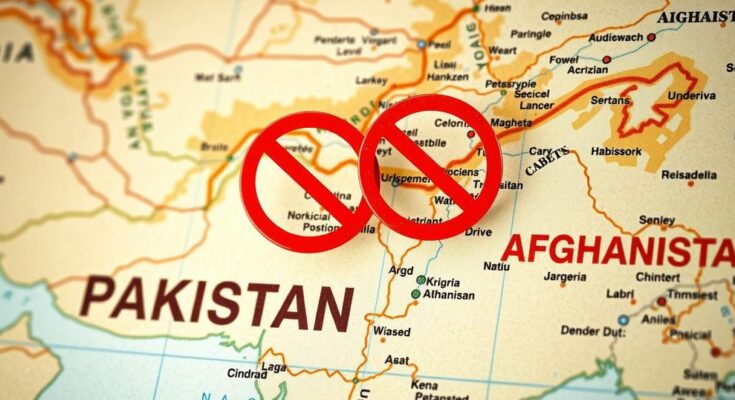The U.S. may impose a travel ban on Pakistan and Afghanistan as part of an expansion of Trump’s previous Muslim ban, with a report due at the White House on March 12. The action follows Trump’s review of visa processes. Key implications may affect Afghans and the Pakistani community in the U.S.
The United States may soon impose travel restrictions on individuals from Pakistan and Afghanistan as part of an expanding travel ban initiated during President Donald Trump’s previous term. A report addressing this potential ban is scheduled to be presented to the White House on March 12, following Trump’s directive in January to reassess visa approval processes and enhance visitor vetting. As stated by Shawn Vandiver, the head of AfghanEvac, “We expect [the Trump administration] to take action very quickly… we are told, however, that Afghanistan, Pakistan and several others are on the list as full suspension countries.”
While there is concern about the proposed ban, Pakistani officials remain hopeful that their country will not be included on the list, particularly due to positive comments from Trump regarding Pakistan’s role in capturing a suspect linked to a deadly bombing in Kabul. Trump expressed gratitude to Pakistan for their cooperation, stating, “I want to thank especially the government of Pakistan for helping arrest this monster” during a recent address to Congress.
Trump’s earlier executive order aimed to identify nations from which the admission of their nationals might be partially or fully suspended due to insufficient screening information. Reports from multiple sources suggest that a renewed travel ban could take effect as early as next week based on national security assessments. Comparative to the initial ban imposed on Trump’s first day in office, which targeted several predominantly Muslim countries, the new restrictions appear to have wider implications.
The anticipated travel ban could impact a significant number of Afghans who have been authorized for resettlement due to their precarious situation following their assistance to U.S. efforts in Afghanistan. Current estimates indicate that around 200,000 Afghans are either awaiting resettlement or possess pending Special Immigrant Visa applications, many of whom are currently situated in limbo in Afghanistan and other countries, including Pakistan.
With estimates suggesting that the Pakistani population in the U.S. may exceed one million, the implications of this potential travel ban resonate deeply within the community, which includes over 10,000 students pursuing higher education. Approximately 20,000 Afghans are currently stranded in Pakistan awaiting resolution on their refugee status or immigration applications.
In summary, the United States is deliberating the inclusion of Pakistan and Afghanistan in a potential new travel ban, spearheaded by President Trump’s recent policies. While there is uncertainty regarding the final decisions, the ramifications could significantly affect Afghans in danger and the Pakistani-American community. Observers remain alert for updates as the situation unfolds in the coming weeks.
Original Source: www.thenationalnews.com




